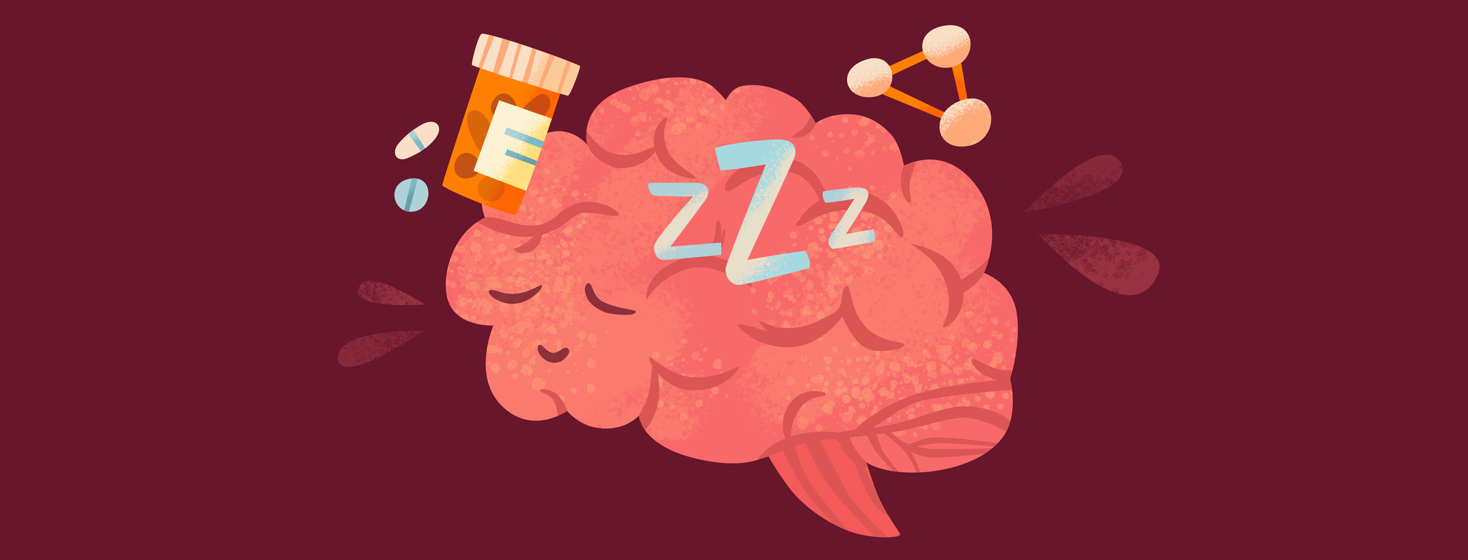How Retraining My Brain Improved My Sleep
I’m incredibly blessed to sleep most nights. It hasn’t always been the case. I suffered chronic and debilitating insomnia for years, which deteriorated to a critical level that couldn’t be ignored.
My insomnia is now managed with good sleep hygiene, strong medication, and techniques I indirectly learned through cognitive behavioural therapy (CBT). None of these things works independently, but together they changed my life.
My favorite sleep hygiene principle
Good sleep hygiene is essential. You’ve probably heard of it and applied most of the protocols. If not, take a moment to revisit it now – it’s the first and most important step towards healthy sleep.
The most impactful sleep hygiene principle for me was creating a safe and inviting sleep space. My room is tidy and my bed is made. I have really comfortable linen and my favourite pillow. It’s cool, dark, and very, very quiet.
My bed is a place I associate with sleep – I’ve broken the pattern of staring at the pillow with horror and wondering how long I have to lie there in misery. It’s taken years, but I persevered and my bedroom has become a haven of rest.
Pharmacological support
Medication isn’t optional for me. All the prettiest linen in the world means nothing when my body fights sleep every inch of the way. I process sleep in the way a diabetic processes insulin – very badly. But with pharmacological support and all the best sleep practices, I rest my mind and body every night.
Drugs are a weapon of last resort. In addition to various prescriptions, there are over-the-counter options like melatonin, antihistamines, and (I’m sure) all sorts of vitamins and supplements. All of these should be discussed with a medical practitioner. Something that seems like a magical elixir for one person is a nightmare for someone else.
The surprising effect of cognitive behavioral therapy
The most surprising thing that changed my sleep has been CBT. I never signed up for a CBT course, but I’ve spent 5 years in psychological therapy for various reasons, done multiple rounds of dialectical behaviour therapy and had 3 psychiatric inpatient stays.
While I have multiple and complex reasons for insomnia, at the end of the day, I couldn’t fix my internal problems with external solutions alone. I had to look at the inside of my head – and it was a scary place to go.
Managing my anxiety and hyperarousal
I have significant problems with hyperarousal – 24/7. It’s a common symptom of PTSD. Hyperarousal is a heightened sense of anxiety that doesn’t switch off – even when I sleep. Learning techniques to manage anxiety during the day taught my body to manage anxiety during the night.
If I wander around all day feeling highly stressed, the chance of sleeping is pretty slim – even with a hot bath and meditation before bed. Too many hours "up" make it hard to come "down."
Embracing radical acceptance
For me, anti-anxiety techniques start with acceptance. Radically and totally accepting all the things I cannot change – weather, traffic, people, news, everything that has ever happened in the past. I can do absolutely nothing about any of these things – nothing. Exchanging my current state of happiness for an hour of worry does nothing.
Radical acceptance is difficult to learn. It sounds easy – just accept that it’s raining when I want sunshine. It’s not that simple. It’s a constant internal dialogue accompanied by deep breathing and affirmations. Relinquishing control over the things I cannot control.
It’s taken me years, but a lot of weights have disappeared from my shoulders. Ridding myself of those weights reduces bedtime worry. I no longer lie awake stressing. I just accept things will be as they will be and I will deal with it – no matter what.
Grounding myself in the here and now
Anxiety is often future-focused – something will happen and I’ll be stressed so I have to pre-plan all my what-if scenarios. That’s a useless waste of emotional energy. Grounding brings focus back to the here and now.
During the day, I might utilise my senses – finding five things I see, four I hear, three I touch, two I smell, and one I taste. Or going through the alphabet and finding something in my environment that begins with each letter. It’s not helpful at night but reducing daytime anxiety reduces bedtime anxiety.
Going to my happy place
In bed, I do conscious relaxation – deep breathing (not too structured as that keeps me awake). Or paired relaxation, clenching all my muscles tight then breathing out slowly as I relax. However, the most important thing that changed for me is something specific I taught myself – not a CBT technique. I "daydream." Instead of stressing about a million “I should have” or “what if” scenarios, I go to a happy place.
Currently, I hop into a campervan each night with my husband and we traipse around the country. I focus on all the joy – not the expense or breaking down or living in a confined space. I just daydream about the positives then I fall asleep relaxed. When I wake during the night (despite all these best practices, I don’t sleep through the night), I intentionally stay in bed and relax and dream.
Changing my psychology changed my life
I have retrained my brain to believe bed is a safe, restful space and that every minute there is a precious reprieve. I practice gratitude for every hour of sleep – be it 2 hours or 7. I’m grateful for all of them. Bemoaning missed sleep just stresses me out.
Anxiety still features in my life – it’s an inherent personality trait and learned behaviour. But it no longer rules my days and nights. Together with good sleep hygiene and pharmacological support, changing my psychology changed my life.

Join the conversation